| HEALTHY HAPPENINGS - January 2026
|
You Don't Have to End Up Like My Grandmother
by Ray Andrew, MD
|
|
My grandmother spent her last 12 years slumped in a wheelchair, unable to recognize us. She had the best care available—but no treatment existed that could help her. Today, things are different.
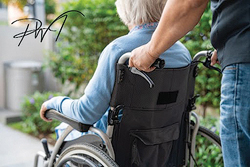
Suzy had always been the life of the party, and quick as a whip. For the last three years, however, she sat in her chair, babbling sounds that could not be deciphered even by family members putting their ears close to her lips. She still showed signs of recognizing family members, and was still able to eat, with some assistance. But she was nothing more than a shell of her former self. It would not be long before her family could no longer take care of her needs and would have to place her in a nursing home.
Things changed three days after Suzy's first treatment. That morning, her son told her he was going to take her out to eat at a barbecue restaurant for dinner. Late that afternoon, he approached her and asked, "What are we doing tonight, Mom?" "We're going out for BBQ." Not only could she hold a conversation now, and not only did it make sense, but her short-term memory was back.
Following the second treatment, Suzy was back to playing her favorite Chopin piece on the piano. She continued to improve with each of her four monthly treatments. She didn't need a booster for six months and has not needed another in the last two years.
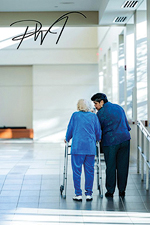 Suzy's story isn't the wishful thinking of a delusional doctor. This is a true story of a woman and her family whose lives have been completely turned around by modern medicine. Until now, doctors have been reduced to chronicling the demise of everyone afflicted by dementia, other than prescribing drugs to control outbursts, severe depression, insomnia, and other behavioral problems that come with this devastating disease. Suzy's story isn't the wishful thinking of a delusional doctor. This is a true story of a woman and her family whose lives have been completely turned around by modern medicine. Until now, doctors have been reduced to chronicling the demise of everyone afflicted by dementia, other than prescribing drugs to control outbursts, severe depression, insomnia, and other behavioral problems that come with this devastating disease.
Understandably, many people's worst fear today is not cancer, heart disease, or even death. It's dementia. Consequently, the pharmaceutical industry has poured hundreds of millions of dollars into creating drugs to treat the disease, but to no avail. The few drugs that have shown any promise whatsoever have been a dismal failure when it comes to stopping the progress of Alzheimer's or any other form of dementia. Neurologists and primary care doctors do not prescribe these drugs with the hope of fixing anything; they know studies show they make no lasting difference. Rather, these drugs are prescribed so that family members feel the doctor is at least doing something, however ineffective it may be.
This failure stems from the fact that Alzheimer's researchers have focused on the wrong targets. The hallmarks of Alzheimer's in the brain—neurofibrillary tangles, tau protein, and beta amyloid protein—are not the cause of the problem. Rather, these proteins are the body's protective mechanisms, its way of responding to the problem. Moreover, like cholesterol drugs, Alzheimer's drugs have risks you may not consider acceptable.
Why not focus instead on upstream processes that lead to dementia? With this approach, researchers and doctors are making real progress. For just one example, plasmalogens are special fats that line all neurons, connections between neurons, and membranes in the heart and lungs. They neutralize inflammatory fats in the brain. Research has demonstrated that reduced blood plasmalogen levels directly increase dementia as well as early death. Without these fats, the brain cannot stop the inflammation that is damaging nerve cells. Increasing plasmalogens has made all the difference for numerous people with dementia, as well as for "healthy" people who simply want to stay on top of their "A" game.
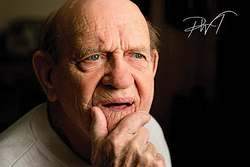
By 2050, experts expect the number of Americans with Alzheimer's disease will at least double, reaching 14 million people. From a business standpoint, this might be welcome news for the nursing home industry, which will have to double its capacity. But our society cannot survive this kind of strain, even if our only concern was cost, ignoring the toll it takes on families.
Fortunately, we now have multiple treatment options that can keep many with dementia at home, with their loved ones, or even living on their own again. And these treatments cost significantly less than the $4,000-6,000 monthly price tag of nursing home placement.
As groundbreaking as these developments are, we have to remember that prevention is far better than treatment or even cure. Because dementia often begins up to fifty years before you forget where you put your keys, why not find out now if you have those changes taking place in your brain? Even better, find out if you have one or more triggers that cause those changes. We routinely check cholesterol as if it was the cause of heart disease and stroke, but few doctors check any of the known causes of dementia. Fewer still know what to do with the results of those tests.
If you want to see if you or a loved one with dementia might be able to get back to purposeful living, or if you want to uncover hidden risks causing inflammation in your brain, there is no better time than now to discuss your options at Prestige Wellness Institute. Your story can turn out like Suzy's, not like my grandmother's. Start by calling (435) 259-4466 in Moab or (435) 210-0184 in Utah County to arrange a consultation.
|
Building on the Good Things: A Healthy Start to the New Year
by Hospital Staff
|
The team at Moab Regional Hospital wishes you a happy and healthy start to the year.
Each January brings talk of “new year, new you.” While fresh starts can be motivating, they can also feel overwhelming. Instead of changing everything at once, we encourage a more realistic approach: build on the healthy habits you already have.
Start With What You’re Doing Right
You don’t need a total reset to improve your health. Often, small changes to existing routines make the biggest difference—and they’re easier to maintain over time. Recognizing what you’re already doing well helps set the stage for long-term success.
You could stay active, cook balanced meals, spend time outdoors, or stay connected with friends and family. Even simple actions like drinking water, getting regular sleep, or checking in with a loved one are meaningful steps toward better health.
Simple, Practical Ways to Support Your Health
In a busy schedule, flexibility matters. Small steps can fit naturally into everyday life:
• Physical health: If you’re already exercising, consider adding one more day of activity each week. A short walk, light stretching, or everyday tasks like yard work or snow shoveling all count. You can also try adding one extra fruit or vegetable to a meal you already enjoy.
• Mental health: Staying connected helps reduce stress. A phone call, a coffee with a friend, or a few minutes of quiet reflection can make a big difference. Many people also find that noticing a few good moments each day helps improve mood and outlook.
• Managing ongoing health needs: If you live with a chronic condition, staying consistent with medications and treatments is one of the most important ways to protect your health—now and in the future. Setting reminders, refilling prescriptions early, and keeping follow-up appointments can help prevent small issues from becoming bigger ones.
• Planning ahead: Scheduling annual check-ups and preventive screenings early in the year can reduce stress and keep you on track.
Your Healthcare Partner, Right Here in Moab
We understand the unique challenges of living in a small community and are committed to providing quality, compassionate care close to home. As your local hospital, we work hard to offer services that support your health at every stage of life.
Moab Regional Hospital is here for you with:
• Family Medicine: Yearly wellness visits for all ages
Call 435-719-5500 (Option 1)
• Mental Health Services: Confidential support for stress, anxiety, and life challenges
Call 435-719-5531
• Recovery Center: Treatment and support for individuals and families affected by substance use
Call 435-719-3970
• Essential Hospital Services: 24/7 Emergency Care (Level IV Trauma Center), General Surgery, Obstetrics (maternity care), advanced Imaging Services, and more.
For general inquiries, call 435-719-3500
This year, instead of feeling pressured to change everything, focus on the good things you’re already doing—and build from there. We are proud to be your local healthcare team and look forward to caring for you throughout the year.
|
The Health Benefits of Rest and Stillness in Winter
by Hospital Staff
|
If you’ve ever felt like going to bed hours before your regular bedtime in the winter, your body is simply responding to the season.
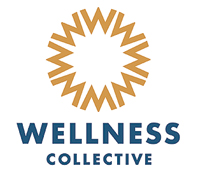 Winter is a time for slowness and stillness—colder temperatures and darker days invite us to slow down. Just as the natural world quiets down, our bodies instinctively follow suit, asking us to rest more deeply and move more gently. It should come as no surprise that we tend to go to bed earlier than usual during the winter months. Winter is a time for slowness and stillness—colder temperatures and darker days invite us to slow down. Just as the natural world quiets down, our bodies instinctively follow suit, asking us to rest more deeply and move more gently. It should come as no surprise that we tend to go to bed earlier than usual during the winter months.
Because shorter days and less daylight shift our circadian rhythms, it’s natural that we slow down. Honoring the seasons—and their impact on our overall health—is essential. And just like we seek opportunities to cool down in the hot summer heat of the desert, winter invites us to adopt a gentler, slower pace.
Research backs this up: studies show that people naturally sleep longer and feel tired earlier in the winter due to increased melatonin production and shifts in the body’s internal clock. In fact, a 2023 study published in Frontiers in Neuroscience found that people experience about 30 minutes more REM sleep in winter, highlighting how our bodies instinctively lean toward deeper, more restorative rest during the colder months. With more darkness and colder temperatures, the body conserves energy, prioritizes recovery, and settles into deep sleep more easily. Instead of resisting this seasonal pull, embracing it can support immunity, reduce stress, and create space for reflection.
“When we honor winter’s natural slowdown, rest becomes a source of strength rather than something to push against.”
But stillness in winter isn’t limited to sleep. Creating intentional pauses in a season that can feel rushed or emotionally heavy is a form of self-care. There are many ways to seek a quieter, slower pace and connect with practices that restore us.
By allowing ourselves to soften, rest, and nourish, winter becomes less something to “push through” and more a time of grounding and renewal that prepares us for the faster energies of spring and summer. And while winter may be about slowing down, there is no shortage of practices to keep you warm, rested, and supported throughout the season.
Winter Rest Tips
• Start your day outside in the morning light to support your circadian rhythm.
• Swap high-intensity workouts for gentler movement—think restorative yoga or a simple stretching practice.
• Adopt a new bedtime ritual: journaling, tea, breathwork, or reading.
• Reduce evening screen time to support natural melatonin production.
• Make your space winter-friendly with comforting touches—slippers, blankets, candles, warm throws, or a heating pad—to help your home feel like a restful retreat.
In a world where we’re constantly asked to move quickly, react, and be productive, winter asks us to make radical shifts. It encourages us to rest more intentionally, set gentler routines, and create space for practices that support our physical and emotional well-being.
Amanda Gray is a yoga instructor at the Wellness Collective and writer in Moab. She teaches classes that are accessible and grounding and writes about health, wellness, and life in the desert.
|
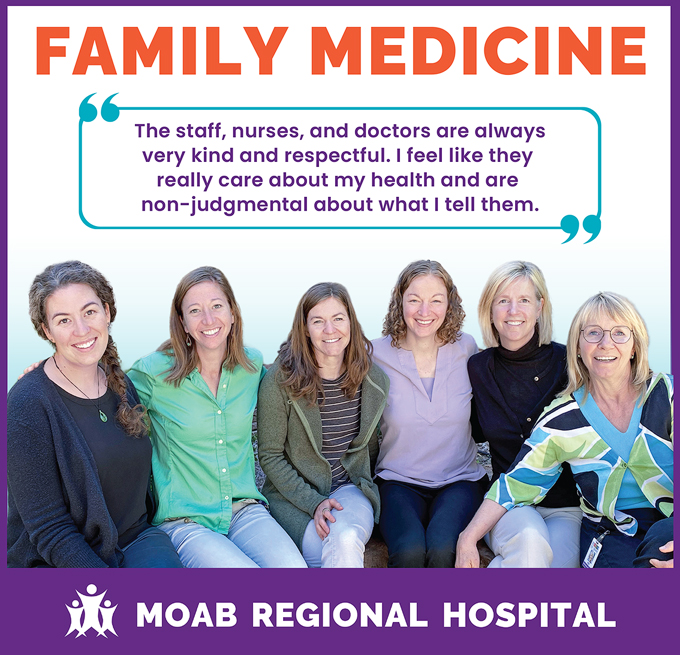 |
|
|